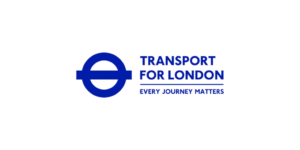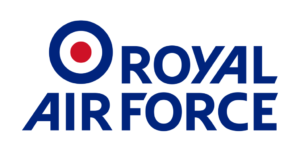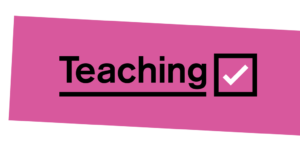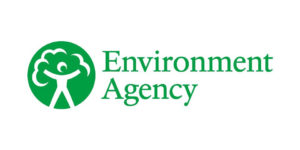Digital Marketing Executive careers guide
Do you love all things online? Can you help people connect? If so, a career in digital marketing could be a dream come true.
How much money can you earn as a digital marketing executive?
These LMI Job Trends give you a sneak peek of how much you could earn starting out for this career, and how much your salary could grow with experience.
Average salary for digital marketing executives
Recent labour market information says you can earn between £20,000 and £60,000 a year as a digital marketing executive.
Your starting salary as a digital marketing executive can vary because of factors like level of experience, training, or location. It will increase over time as you build skills, knowledge and experience.
Digital Career FAQs & Insights
Is there something you’d like to know about digital careers? Maybe we can help!
Skills you need to become a digital marketing executive
Useful skills to put in your CV:
- Computer skills. Since Digital Marketing Executives work primarily online, you’ll need to be a whizz with a computer.
- Knowledge of specialist software. Different companies use different software products, but knowledge of specialist digital marketing software, CRM (customer relationship management) software, social media management tools, analytics tools, digital content creation packages (e.g. Photoshop, Canva, Adobe, and video editing software), and data management tools will all be useful.
- Communication and people skills. Marketing is a people business and you’ll need to work closely with the rest of the Marketing team as well as other teams in the business.
- A robust knowledge of core marketing principles, all the main social media channels, and SEO.
- Empathy. Being a great marketer is all about understanding how others think, feel, and react.
- Great writing and editing skills.
- Close attention to detail, as small errors can cause big problems in the world of marketing.
Top Skills-boosting Tips
We are all bombarded with advertisements every time we go online. According to 75Media, the average person in Britain is exposed to well over 5000 advertisements each day, many of which will be online. Chances are, you tune most of them out, scrolling by without giving them a second glance.
But think back to some memorable ads you have seen recently that you can remember. What made them stand out from all that noise? Try to write down five things you remember that spoke to you or stuck in your mind. Viewing ads as a marketer as well as a consumer will help you to develop an understanding of what works and what doesn’t.
How Do You Get These Skills?
Vocational qualifications and work experience will help you build these skills over time.
What Qualifications & Training Do You Need For Digital Marketing Careers?
School, college and training
Apprenticeships
An apprenticeship is a scheme where you train while earning a starting salary. With an apprenticeship (or advanced apprenticeship) you’ll have a paid job with an employer that includes structured training and learning. This training leads to an official qualification that’s recognised by employers as an industry standard.
There are numerous apprenticeships available in Digital Marketing all over the UK. Find them by searching online. Many digital marketing apprenticeships are now partially or entirely remote, so you do not need to be limited by geography (though remember that you may need to attend college classes once per week as part of your apprenticeship.)
You could apply to work within a small, local company or with a huge international brand. You could also choose an apprenticeship that will allow you to specialise in a particular area of digital marketing, such as SEO, marketing photography, or content marketing.
A-Levels
A Levels are academic qualifications that come after GCSEs. A Levels can be an ideal stepping stone to an apprenticeship, degree, or professional qualification in marketing. Choosing subjects such as ICT, Media Studies, Business Studies, English, and Psychology will help you to get started in your marketing career.
BTECs
As an alternative to A-Levels, you can do BTECs from the age of 16.
There are several BTEC options that can be a great way to start your career in digital marketing. You might wish to consider courses like:
- Level 2 Technical in Marketing
- Level 3 National in Marketing
- Level 3 Extended Certificate in IT (Digital Marketing & Web Design)
- Level 3 Specialist Qualification in Digital Marketing Business Principles
- Level 5 HND in Marketing
You’ll normally need 2 or more GCSEs at grades 9-3 (A*-D) or equivalent for a Level 2 or 3 course. If your qualifications are lower than this, you’ll most likely start on a Level 1 course.
Professional Qualifications
Professional qualifications are highly tailored, practical courses that are recognised within an industry and show that you are proficient enough to do a particular role. Some examples of professional qualifications in digital marketing include Imperial College Business School’s Professional Certificate in Digital Marketing, the Chartered Institute of Marketing’s Certificate in Professional Digital Marketing, and the Digital Marketing Institute’s Professional Diploma in Digital Marketing.
Professional qualifications can be expensive. Do your research before you hand over any money, and check whether any discounts or bursaries are available to you. If you’re already in a marketing role consider asking your employer whether they will sponsor you to take a course to advance your career. Many employers have a budget specifically to support talented employees with their professional development.
Degrees and University
Many professional marketers now hold a degree, and many employers require or strongly prefer their employees to have one. Marketing is now a respected and widely available Bachelor’s Degree subject. Universities including Bath, London City, Durham, Exeter, Southampton, Manchester, and many more offer highly regarded Marketing programmes.
You can also take a degree in Digital Marketing specifically, though this is less widely available than a general Marketing degree. Universities including Derby, London Westminster, Sheffield Hallam, University for the Creative Arts, Leeds Beckett, and Oxford Brookes offer this programme.
Postgraduate Degrees
If you already have a Bachelor’s degree, you can take a postgraduate qualification such as a Masters Degree in Digital Marketing. In this competitive field, many senior executives now have a postgraduate degree.
You can take a Masters Degree in Digital Marketing at several universities across the UK including King’s College, Nottingham Trent Business School, Manchester Metropolitan, and Queen Mary London.
Career Progression
Digital Marketing Executive is a senior position, typically involving overseeing an entire marketing team and managing all the digital marketing for your company. This means that you should expect to begin in an entry level position and work your way up as you gain experience.
What Work Experience Do You Need For Digital Marketing Jobs?
Work Experience Tips
One exciting thing about digital marketing is that it is near-universal these days, meaning that it is used in virtually all industries and sectors. This means that you have a great chance of finding a relevant digital marketing work experience placement. You can find placements or internships via your school or college, by researching openings and applying online, or even by approaching companies directly.
Don’t forget about marketing roles outside of traditional businesses, too. Government organisations, charities, arts and cultural sector organisations, and educational establishments such as colleges and universities all make use of digital marketing and are all potential sources of work experience.
You can also count part-time jobs, summer and holiday jobs, and freelance or casual work as work experience as long as it’s relevant to marketing in some way.
Examples of relevant work experience include:
- Work shadowing (even if it’s just for a day)
- Work placements in a company
- Work experience placements on a college or university course
Volunteering Tips
Volunteering means giving your time for free to a cause or organisation. It has numerous benefits, one of which is that it looks great on your CV. Why not offer your time in a marketing-related capacity to give back to an organisation you care about and enhance your skills at the same time.
For example, you might offer your services as a volunteer Marketing Assistant to a charity, run the social media channels for an extracurricular organisation, or take on the responsibility of online marketing for a club or society at your school, college, or university.
What Does A Digital Marketing Executive Do?
What do digital marketing executive careers involve?
Example daily job responsibilities
- Planning and developing marketing strategies
- Managing and overseeing the rest of the digital marketing team
- Analysing past marketing data and forecasting future performance
- Managing a digital marketing budget
- Reviewing marketing campaign performance to ensure a positive return on investment (ROI)
- Assessing marketing campaigns against the company’s key performance indicators (KPIs)
- Writing, creating, and editing content
- Reviewing and signing off content by other members of the team
- Ensuring content is optimised for search engine results (SEO)
- Managing the organisation’s social media presence
- Setting up, managing, and reviewing paid ads (e.g. on social media and Google Ads)
- Attending and documenting company events and activities
- Producing reports on marketing activities and their outcomes
- Preparing, editing, and sending communications such as e-newsletters
- Keeping up to date with industry trends, news, and best practices
- Maintaining and managing relationships with internal and external stakeholders
- Attending meetings with other senior executives and team members
- Ensuring that digital marketing plays an active role in all the company’s public-facing activities
How To Find Digital Marketing Jobs: Next Steps
To find jobs for young people in this role, search on jobs boards for early career roles and opportunities with these words in the title:
- Digital Marketing bootcamps
- Digital Marketing apprenticeships
- Digital Marketing traineeships
- Junior Digital Marketing Executive
- Digital Marketing Assistant
- Junior Digital Marketer
- Social Media Marketing Specialist
- SEO Specialist
- Content Marketer
- Digital Content Creator
If you’re based in London, check out the London Digital Jobs and Skills Hub. They have loads of free training, digital skills bootcamps, and digital marketing apprenticeships on offer!
You can also take a look at our database of local opportunities to see if there are any relevant jobs, work placements, or careers events and workshops to help you get started.
If you have completed an apprenticeship in Digital Marketing, you may be offered a job at the end of your training. While this is not a guarantee, many employers will look more favourably on your application if you have completed an apprenticeship with them. From here, you can work your way up.
If you have completed an undergraduate or postgraduate marketing degree, consider looking for graduate job schemes. You should start doing this long before you graduate. This will start you out on a structured career path, gaining the experience to eventually become a Digital Marketing Executive.
You can also apply directly to companies advertising, if you have the appropriate skills. Look on companies’ careers pages or jobs boards such as Indeed, Reed, Monster, and LinkedIn.
Get Into Digital Careers With Youth-Friendly Employers
These employers and organisations are here to help. They care about your potential and desire to learn, not just your qualifications and experience. They may be able to offer traineeships, apprenticeships, graduate schemes, first jobs, careers advice, wellbeing support and much more.
Digital Career Tips & Opportunities
Digital Career Guides
View job descriptions with average UK salary, useful qualifications and a variety of routes into this career.
See All Our Youth-Friendly Employers
London tech careers are in YOUR reach.
Salary? Jobs? Training? You got it. No experience? No problem. You've got the power. We'll give you the support!
London Digital Jobs and Skills Hub





































































YES! I Want More Free Careers Help...
So what are you waiting for? Grab your future.











































